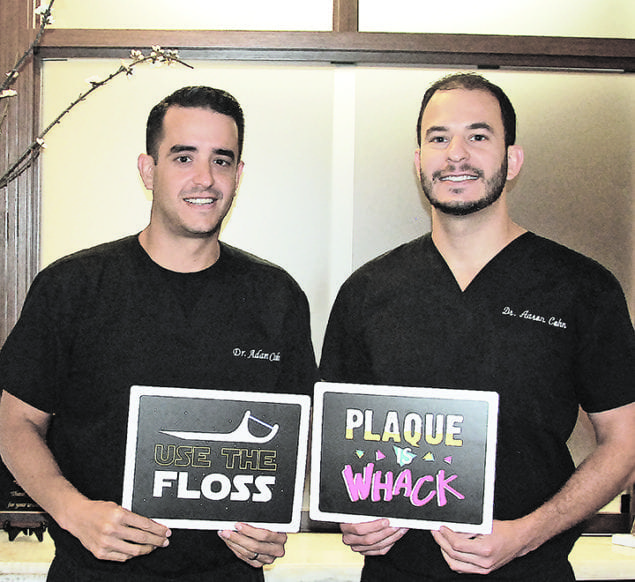
Not so fast! We are still going to recommend daily flossing if you want to proactively care for your teeth and gums. Until the research is done to prove that flossing is effective, our patients will just have to rely on our clinical judgment and that of the American Dental Association and the American Academy of Periodontology, that flossing is the best thing for most people to do in order to remove plaque, impacted food, and bacteria from in between the teeth.
If you are not familiar with the news and controversy surrounding new questions as to the effectiveness of dental floss, here it is: The Associated Press reported that the government Office of Disease Prevention and Health Promotion removed or omitted flossing from the latest “Dietary Guidelines.” Apparently, when the AP contacted the ADA for evidence that flossing is effective, the ADA was unable to produce current, conclusive studies in support of flossing.
Subsequent to the news article being released and circulated, the ADA has responded stating, “a lack of strong evidence doesn’t equate to a lack of effectiveness. As doctors of oral health, dentists are in the best position to advise their patients on oral hygiene practices because they know their patient’s oral health status and health history.” The association’s statement also took issue with the implication that removing the flossing recommendation from the dietary guidelines meant the government has changed its stance on flossing, saying “this is simply not the case. The Dietary Guidelines Committee made a deliberate decision to focus on food and nutrient intake.”
In our practice, we recommend flossing at least once per day, before brushing. Flossing first removes plaque and impacted food or debris from in between the teeth. This allows for the toothbrush bristles and toothpaste to better reach the interdental spaces, thereby making brushing more effective and efficient. For anyone doubting the importance or effectiveness of flossing, perform your own little experiment. If you brush first and then floss, take note of anything you’ve removed with the floss. This additional debris would have been left to foster bacterial growth. Other devices such as “Waterpiks” don’t do as good of a job as floss does most of the time; mechanical removal of plaque is needed. There are other tools or adjuncts your doctor may recommend such as a Proxabrush or electric toothbrush heads designed to better reach between the teeth.
When it comes to preventing dental decay and gum disease, physically removing plaque and impacted food or debris is the ‘name of the game.’ The goal is simply to limit the habitat and nourishment for bacteria, the byproducts of which cause damage to the teeth and inflammation of the gums.
In addition to daily brushing and flossing, regular professional dental cleanings and exams are essential. At Smile Miami we are committed to helping you maintain your oral health and achieving the smile you’ve always hoped for. We can be reached at 305-598-1428 and are always welcoming new patients.






